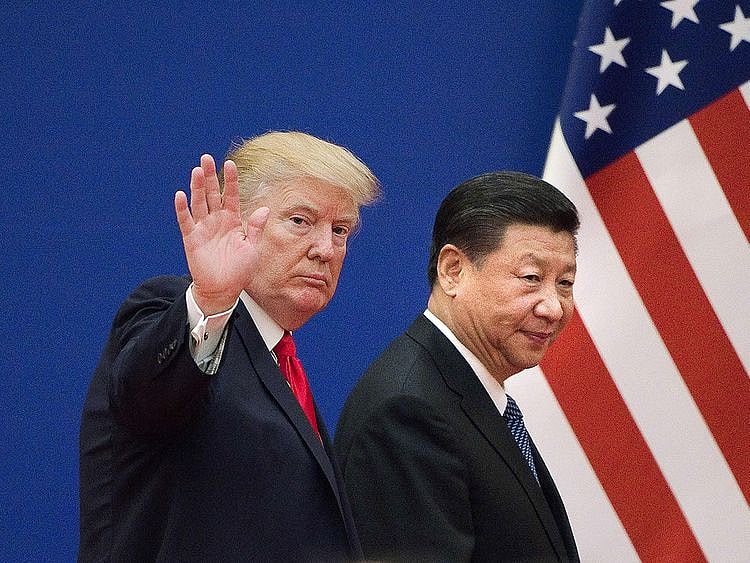During the G20 Osaka summit, US President Donald Trump and China’s Xi Jinping showed a keenness to resolve their trade issues. However, the simmering differences in their ties seem to be getting even more complicated.
The developments in recent days could be a bad sign for efforts to reach a compromise between the world’s largest economies.
Trump first criticised China of non-commitment to an agreement to increase its purchase of US agricultural products. This means the US may take counter measures if China fails to commit to an agreement.
US digital dominance
On the other side of the Atlantic, the EU member-states are trying to protect their declining clout in tech due to the dominance of US digital and social networking companies.
Because of US dominance, other countries have incurred hefty losses that pose threats to their economies.
This has prompted these countries to take some measures to stop this ongoing bleeding, which has led to thousands of business bankruptcies and retail outlets shutting down.
Last week, France became the first country in the Eurozone to impose a digital tax on giant tech companies such as Amazon, Google and Facebook.
The tax drew an angry response from the Trump administration, which protested the move and launched a probe into the tax as an unfair trade practice.
For years, US tech giants have been dominating global commerce, pulling the rug from under the feet of traditional businesses and transferring astronomical profits from those countries to the US without paying any charges because there was no tax imposed on them. Even though they use the digital structures of these countries.
In a quick reaction to the French move, the UK announced a draft finance bill to impose a similar tax on tech giants, justifying the move as designed to ensure a fair and competitive tax system. The tax rate, which is expected to reach up to 2 per cent, will pump more than half a billion US dollars into the British Treasury.
We expect more countries will impose taxes on major digital companies that have dominated global digital commerce.
Powerful, popular
They have increasingly become more powerful and popular, sweeping their way past trading companies and economic institutions in other countries, including those in the media sector which has lost a big chunk of their advertising revenues.
This situation has led US digital companies to securing enormous profits at the expense of companies in other countries. For example, Amazon earned net profits of $7.4 billion (Dh27.15 billion) for the fourth quarter of 2018 while its revenues were $72.4 billion.
Google’s profits amounted to $5.4 billion in the first quarter of this year, despite a European Union anti-trust fine of $1.7 billion.
Now the entire world is suffering from US trade predominance that threatens global trade and the economies of many countries, including even developed ones.
This requires finding global solutions to maintain trade and economic stability, since those put up by individual countries have failed to come up with the desired results. That is because of vast differences between the huge potential and competitiveness of US digital companies and their counterparts elsewhere.
Some countries, including developing ones, have tried to create similar digital companies, but have faced countless difficulties, with the exception of China’s Alibaba, which has managed to break the dominance of US digital giants. This success could be attributed to the vast scale of China’s economy and a population of 1.37 billion.
There is a need to restructure global commerce in a manner that enables it to respond to the digital era and its consequences, as well as preserve the interests of all countries when it comes to economic growth and stability.
Dr Mohammad Al Asoomi is a UAE economic expert and specialist in economic and social development in the GCC countries.
Sign up for the Daily Briefing
Get the latest news and updates straight to your inbox
Network Links
GN StoreDownload our app
© Al Nisr Publishing LLC 2026. All rights reserved.
